Dukhtar too has a potential to lay claim to all of that and then some, thanks to its excellent subject matter.
Dukhtar means ‘daughter’ in Farsi and Urdu dialects. The movie is predominately a story about the plights, miseries and ultimately the bravery exhibited by the principal protagonist of the movie, Allah Rakhi (Samiya Mumtaz). Under the banner of The Crew Films, Dukhtar is directed by Afia Nathaniel, who is a graduate of Columbia University School of Arts.
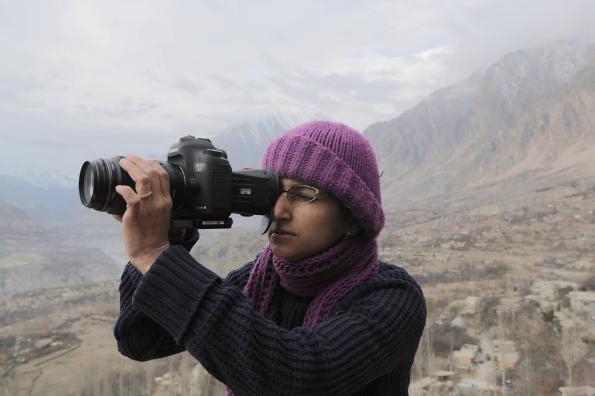 Photo: Dukhtar Facebook page
Photo: Dukhtar Facebook pageThe movie’s premise revolves around a woman’s struggle, resilience and unwavering perseverance in the face of extreme odds. Rakhi undergoes many trials and tribulations to make sure of the fact that her daughter Zainab (Saleha Aref) doesn’t fall into the dreaded shackles of the same fate, of getting married to an old tribal chieftain, that she had encountered when she was 15-years-old.
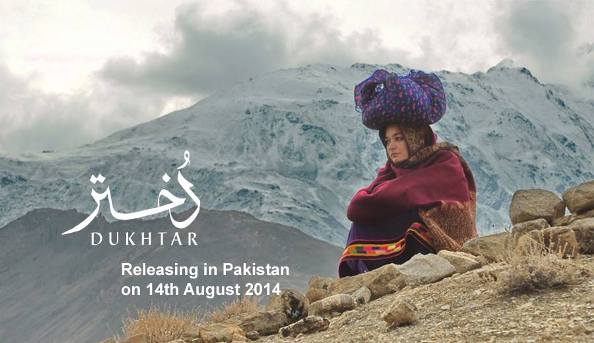 Photo: Dukhtar Facebook page
Photo: Dukhtar Facebook pageThe mere thought of her daughter’s marriage to a much older man sends shivers down her spine and she vows to protect her infantile daughter, who is only 10-years-old, from this draconian custom. Subsequently, as events progress during the course of the movie, she decides, as a last resort, to run from her husband’s home with her daughter to escape the ominous fate which would surely befall her daughter and which seemed more than imminent had she stayed there.
Thus, her journey to escape the picturesque and serene northern areas of Pakistan and to reach her hometown of Lahore begins. On the run from her husband and the whole tribal clan, her path gets entwined with an ex-mujahid truck driver, Sohail (Mohib Mirza), who helps her in whatever capacity he can.
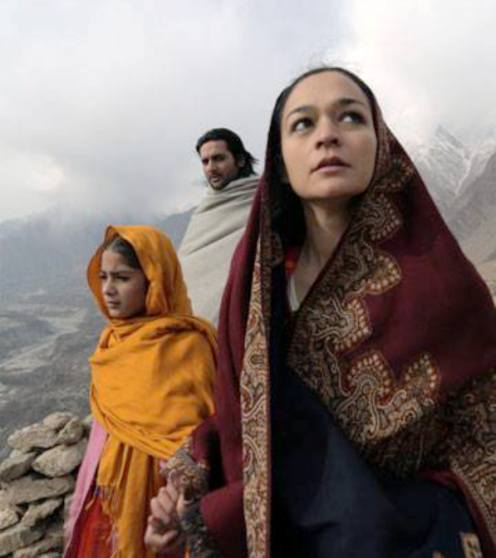 Photo: Dukhtar Facebook page
Photo: Dukhtar Facebook pageRakhi’s actions and the movie itself will make the audience question the logic behind this antediluvian custom. This archaic tribal ritual of child marriages (child brides) is used as a mean of settling old feuds between rival clans under the guise of “honour”. If bluntly put, this practice is nothing more than satiating one’s vile paedophilic, sadistic and masochistic tendencies coupled with the false bravado associated with it.
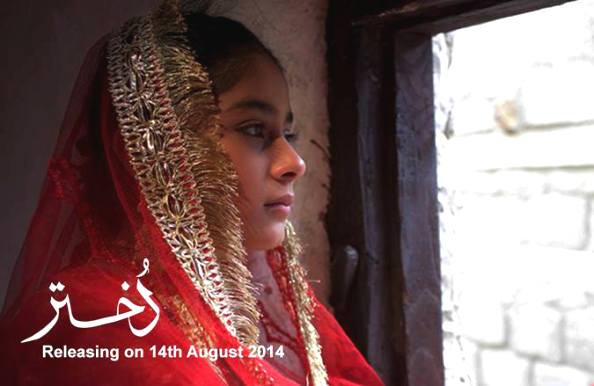 Photo: Dukhtar Facebook page
Photo: Dukhtar Facebook pageThe dialogue delivery of the cast members, especially Mumtaz, is unwavering and strong. Mirza also exhibits a strong portrayal of the character that he plays. The child actor, Saleha, is surprisingly good as well. They are augmented by a strong cast of seasoned actors such as Asif Khan, Ajab Gul, Adnan Shah (Tipu), Abdullah Jan, Samina Ahmed, Zeeshan Shafa and Omair Rana.
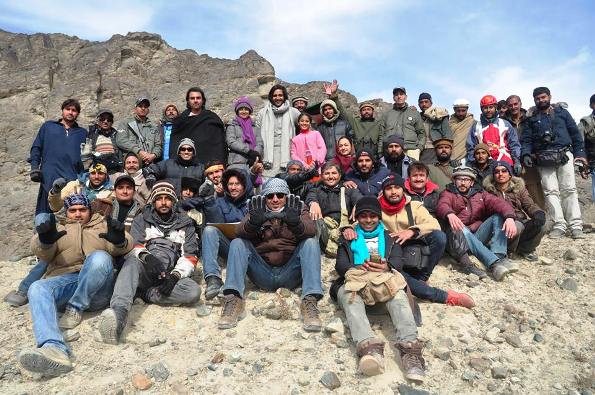 Photo: Dukhtar Facebook page
Photo: Dukhtar Facebook pageIn terms of the visual elements, Dukhtar in a nutshell is breath-taking to look at. Set against the backdrop of gorgeous and surreal locations of Gilgit, Hunza Valley, Skardu and Kallar Valley, it will be, aesthetically speaking, a visual feast for moviegoers. The director does well to differentiate and saturate the visual tones between showing the beautiful, albeit rugged, terrain of northern Pakistan and the monotonous urban concrete jungle that is Lahore.
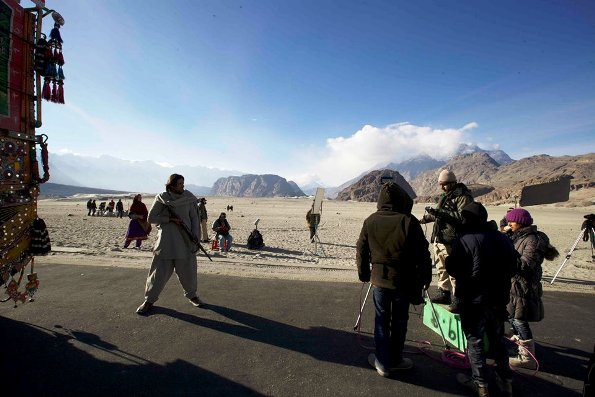 Photo: Dukhtar Facebook page
Photo: Dukhtar Facebook pageIn terms of the auditory elements, the music and soundtracks composed for this movie are powerful and complement the storyline very well. Cases in point are, “Jeenay Chaley” by Shafqat Amanat Ali and “Naina” sung by Hina Nasrullah.
While the movie depicts a specific backdrop (actors who play Pakhtuns) that can be limited to northern areas, this movie should not be misunderstood as portraying negative stereotypes of a certain ethnicity. It should, instead, be seen as shedding light towards a serious matter in general that is as much prevalent in other parts of our country and has also plagued Sindh, Balochistan and Punjab in equal measure. Additionally, it should also be seen as a catalyst that will hopefully bring attention of relevant authorities towards this menace of child brides, for implementing regulatory frameworks to cease this practice once and for all.
The movie has been praised internationally as well. Recently, on September 5, 2014, it was premiered at the prestigious Toronto International Film Festival (TIFF) and received widespread acclaim for its story.
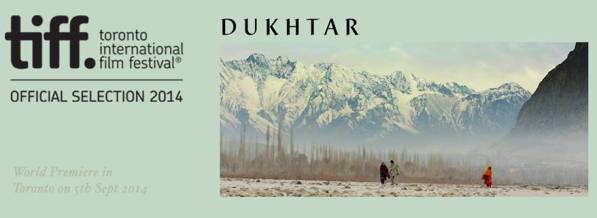 Photo: Dukhtar Facebook page
Photo: Dukhtar Facebook pageDukhtar opened nationwide in all major cinemas across Pakistan on September 18, 2014, and I would highly recommend people to watch it.

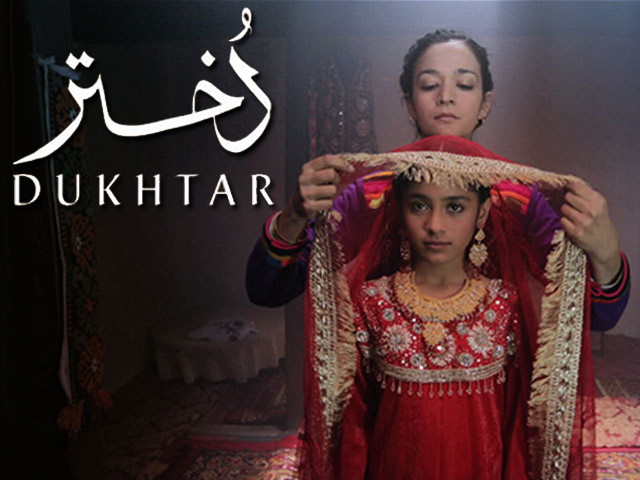

COMMENTS
Comments are moderated and generally will be posted if they are on-topic and not abusive.
For more information, please see our Comments FAQ